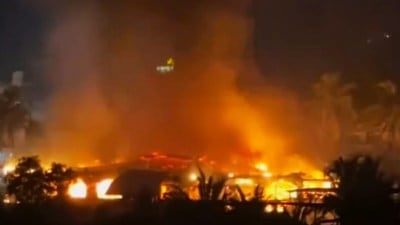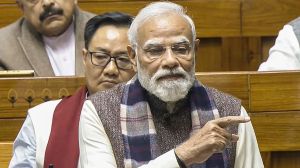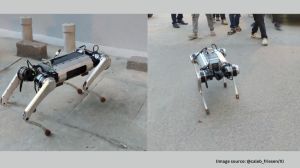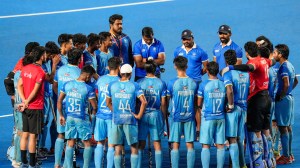Who killed Medovi Kire?
This is not a new story. Nor will it be the last of its kind in the North-East. It happens often. It unites people in a comradeship of pain...

This is not a new story. Nor will it be the last of its kind in the North-East. It happens often. It unites people in a comradeship of pain and suffering.
On March 19, 1997, a small group of soldiers from a paramilitary force was fired upon, apparently by Naga insurgents in the commercial town of Dimapur. Dimapur is Nagaland’s largest city.
In an earlier incident, one recalls, when men from the security forces were fired upon a Sunday, they went virtually berserk, shooting in the air and forcing people coming out of church services to squat on the ground and submit to body searches. Residents flung themselves on the ground, fearing bullet injuries. “It was like a nightmare,” said one person who experienced it.
But March 19 was something different. The soldiers were shot at and they retaliated quickly and aggressively, as they had been trained. A school was located near the scene of the incident and Medovi Kire, who lived near there and taught at the school, came out to do what any normal person would have done in the circumstances — to warn the children and tell them to lie flat to avoid injury.
Kire, at considerable risk to himself, rushed to the school and shouted at the children to prostrate themselves. According to several witnesses, this is what happened afterward:
A number of soldiers, led by an officer (the witnesses could not say whether he was a Captain, Major or a Colonel), caught hold of Kire and beat him to the ground. All the time, he was calling out to them that he had only wanted to warn the children and make sure they were safe. He rose once, only to be beaten down again. He rose a second time, and was slammed again down with kicks, fists and rifle butts. This time he stayed down.
All this in front of his horrified family and grandchildren as well as the school children. Kire had seven children, some of them were married.
The soldiers then hauled him to a vehicle and drove away.
The next day, Kire cam home — with a neat bullet through his forehead.
Some of his children and grandchildren were so angry that they vowed to avenge his death. Two uncles sat through the day and night to persuade them of the futility of such a course and why revenge was not the answer, that it would only add to the cycle of hatred and violence that was ravaging Naga society. To their credit, they were able to persuade almost every one of them not to take to arms.
They need not have done that. They could have just as easily egged them on and sought revenge. The uncles did a brave and selfless task, at great personal pain.
Stories such as this underline the ever-present threat to life and liberty that exists in different parts of the region. That the threat should come from those who are there ostensibly to protect is no longer surprising.
Troops in this region are not really trained to cope with the psychological pressure of just being there, in a hostile environment, where they are the targets of attack as they are viewed as representatives of New Delhi’s authority. Just preaching sensitivity and human rights is not going to go very far. For they will turn around and ask: what about human rights violations by the militants, what about their extortion rackets, what about their consistent attacks on those who disagree with them?
There are times when something snaps. The tragedy is that these times’ are becoming more and more frequent.
A campaign has started to scrap the sweeping powers available to soldiers in parts of the North-East where the Armed Forces (Special Powers) Act is enforced. This enables even a jawan to march into an individual’s home and interrogate, detain and take him away for questioning.
Fifty years after independence, isn’t it time to do away with those laws that degrade the human condition and spirit? That will be another stitch to patch up the tattered fabric of the North-East.
The writer specialises in North-East affairs
- 01
- 02
- 03
- 04
- 05































